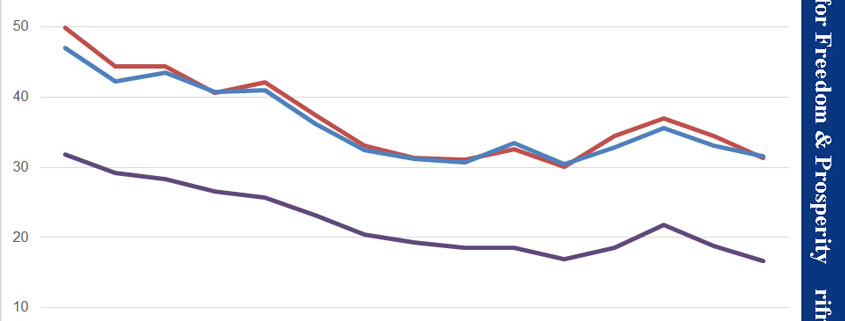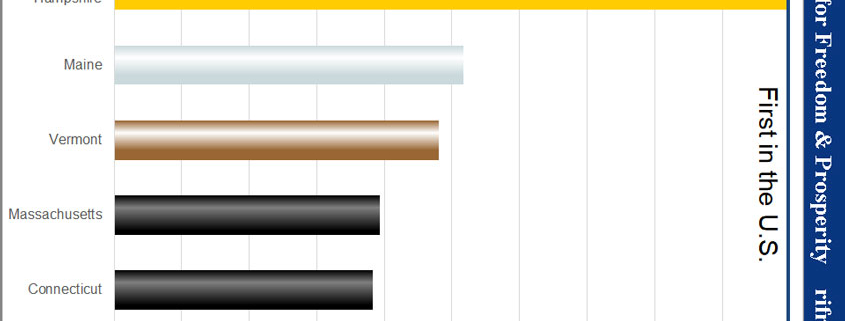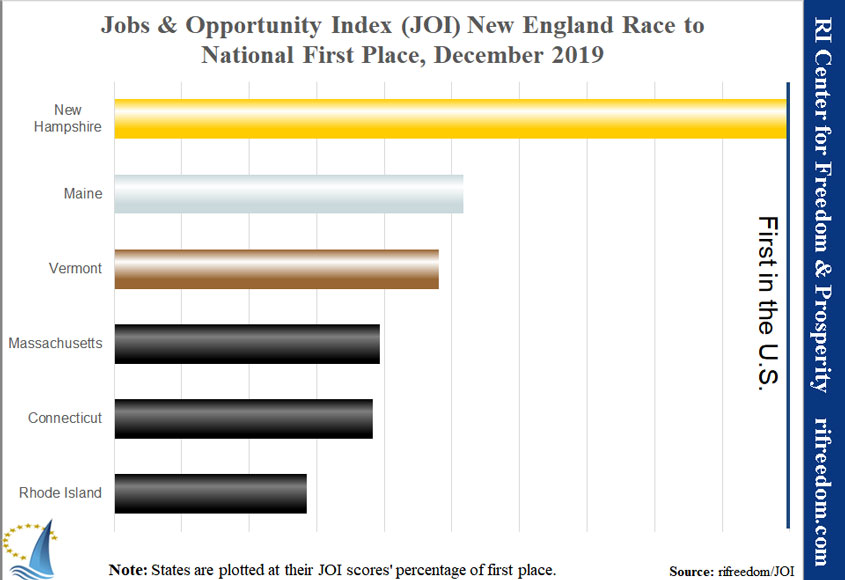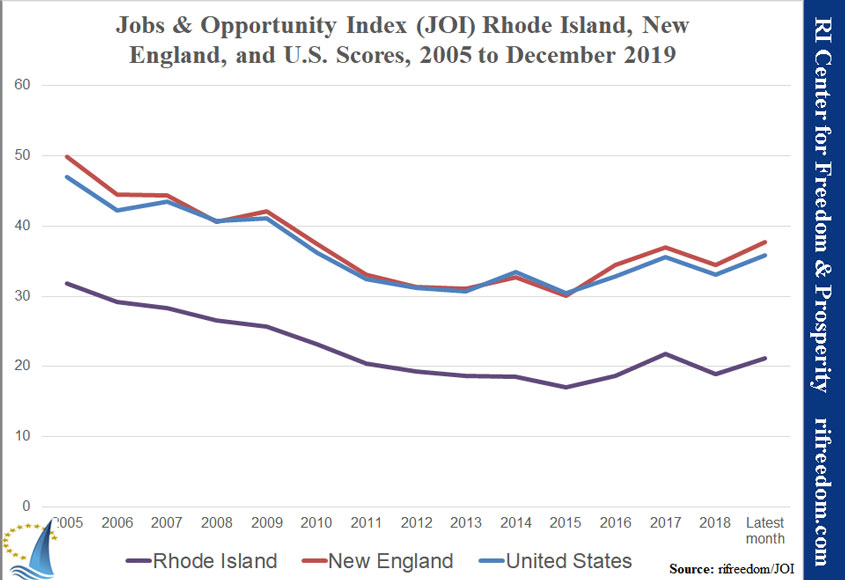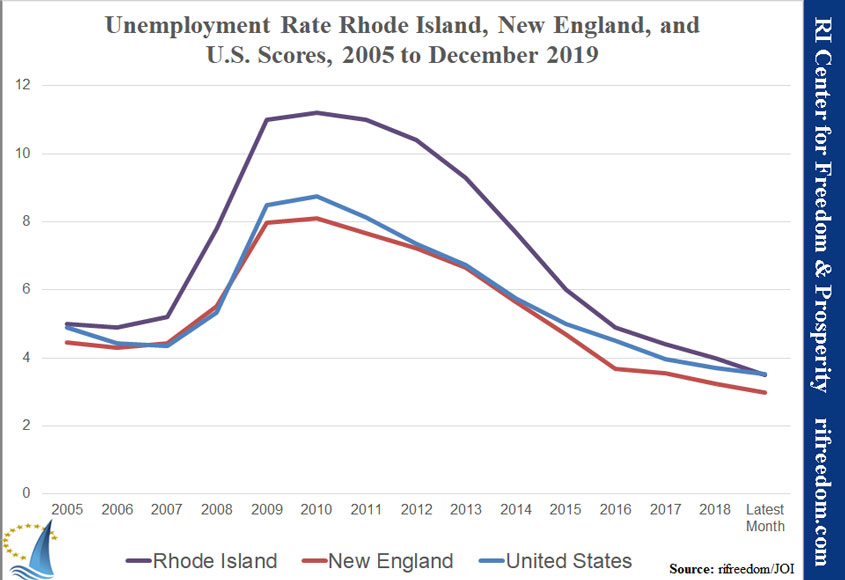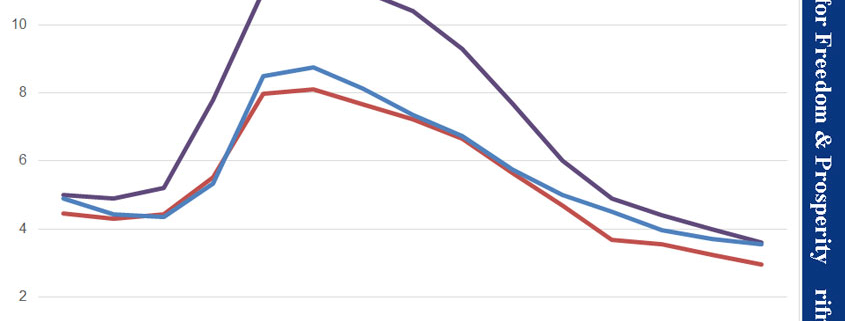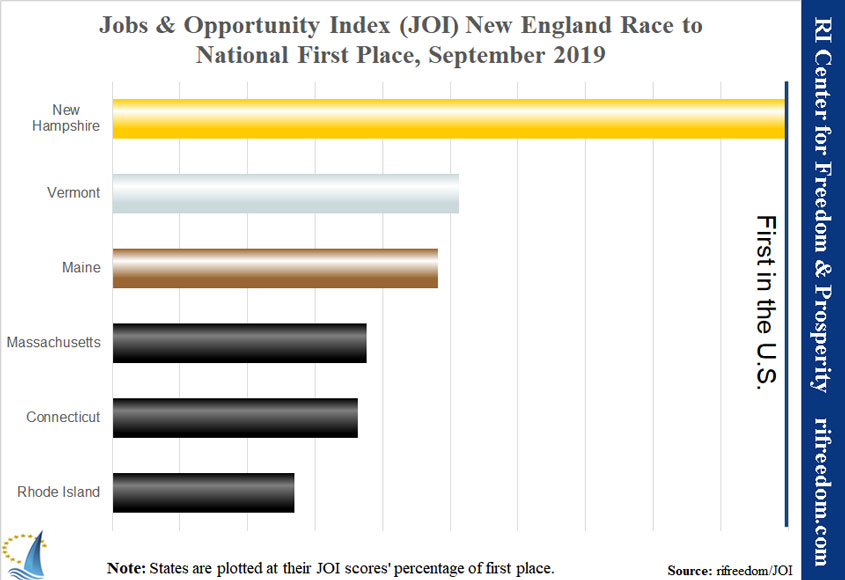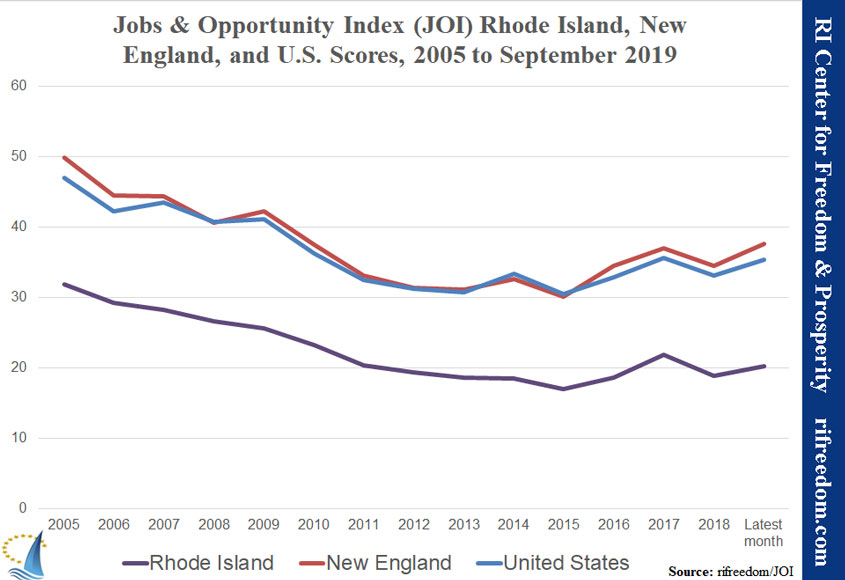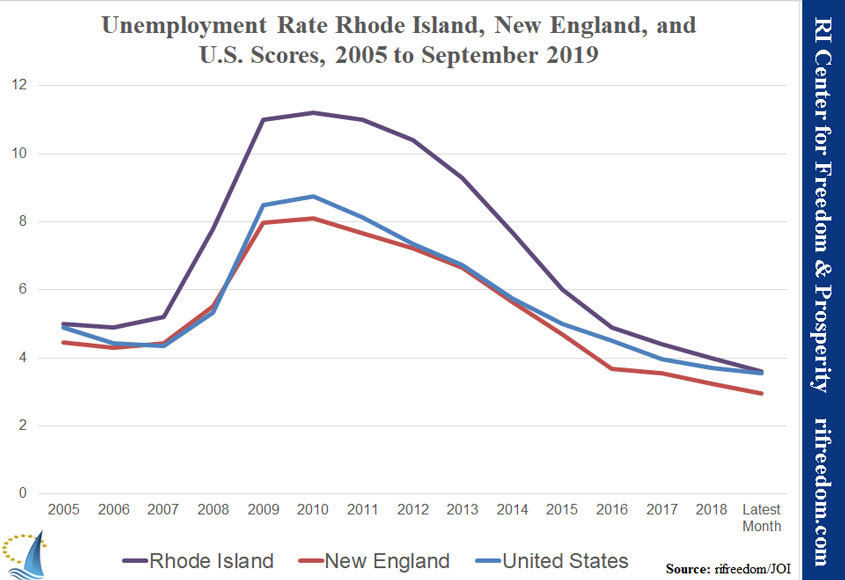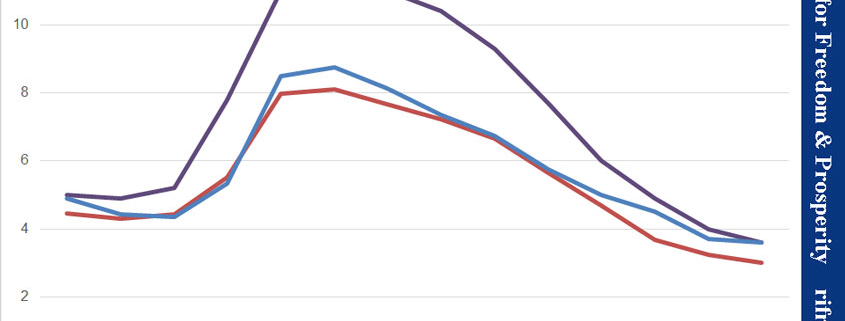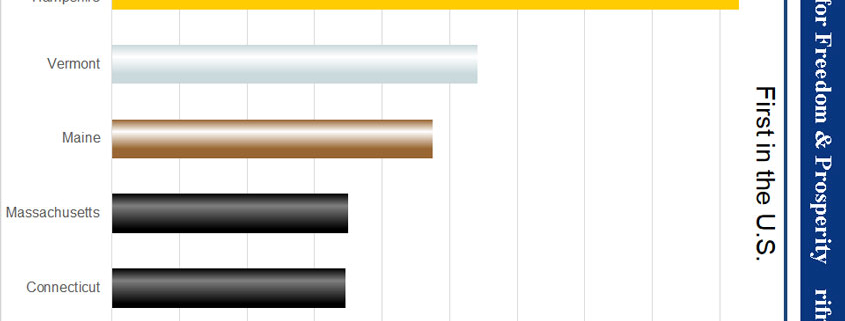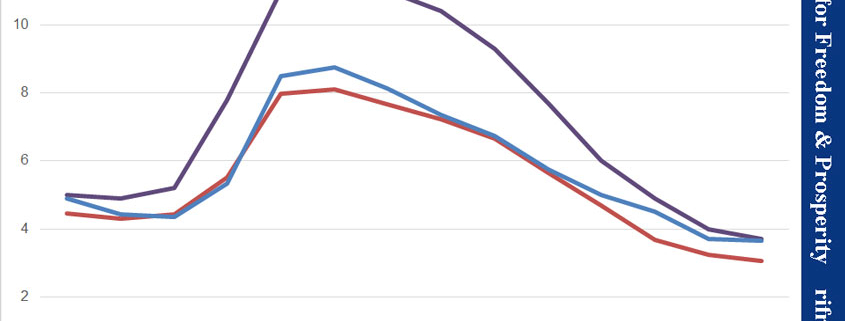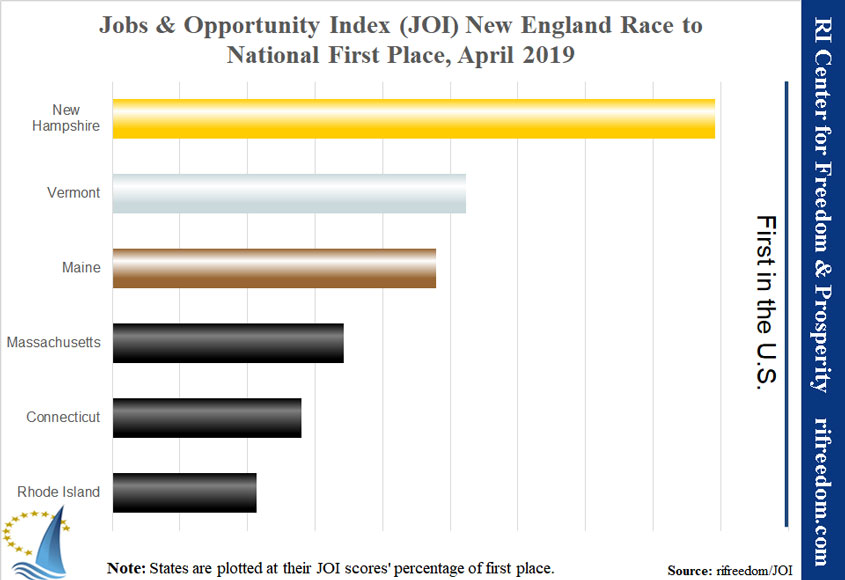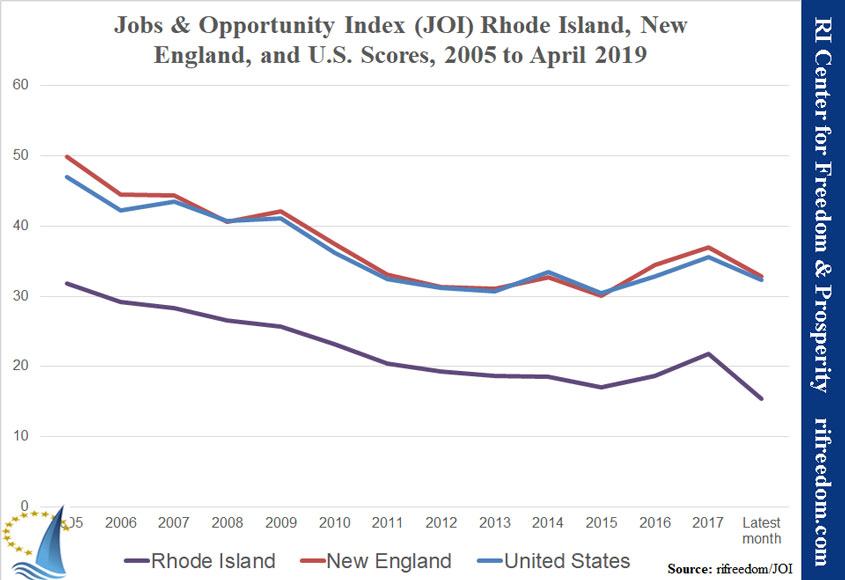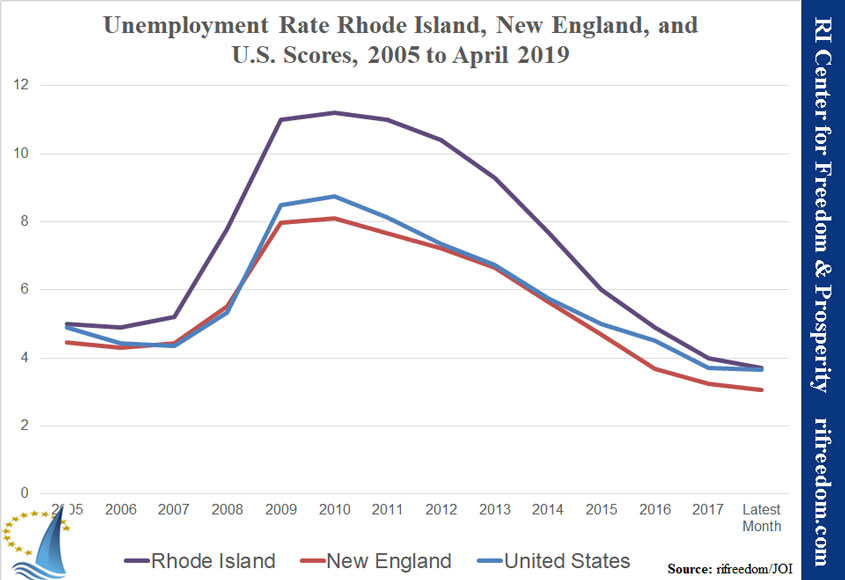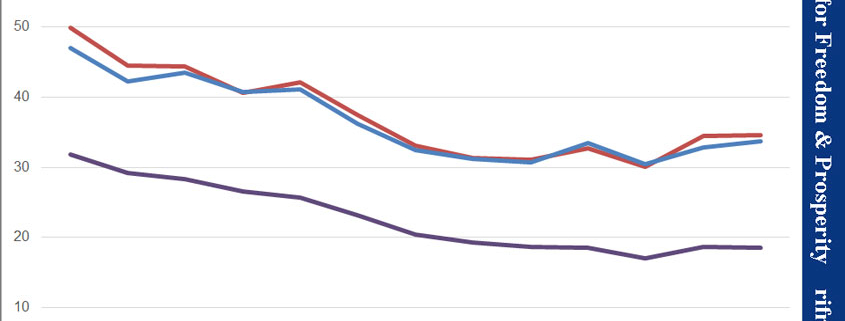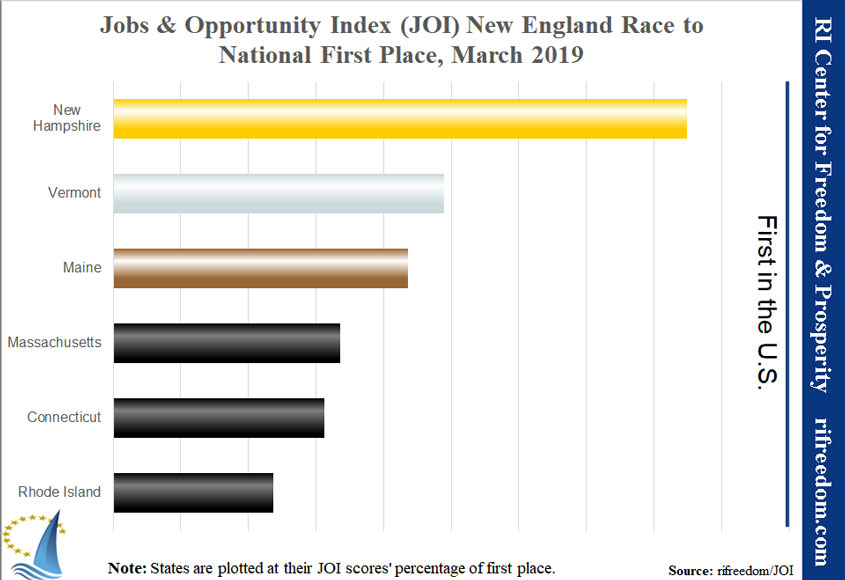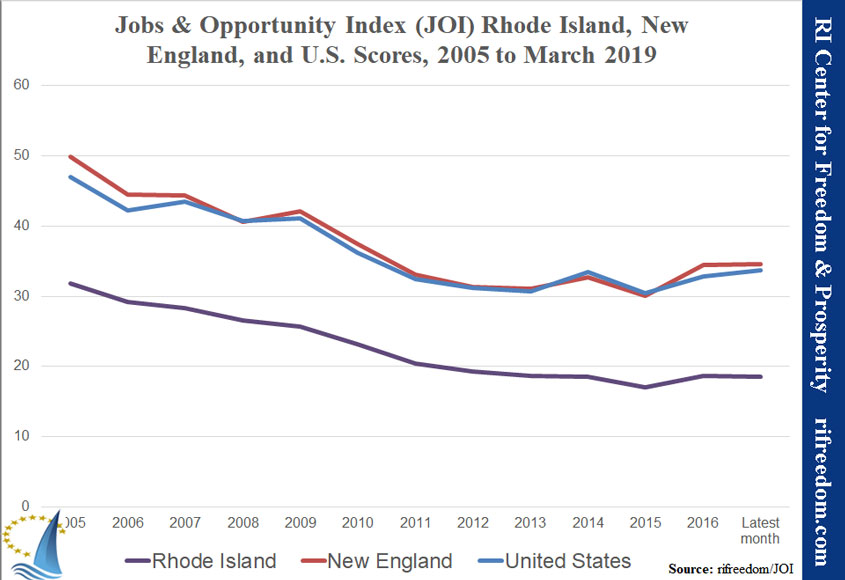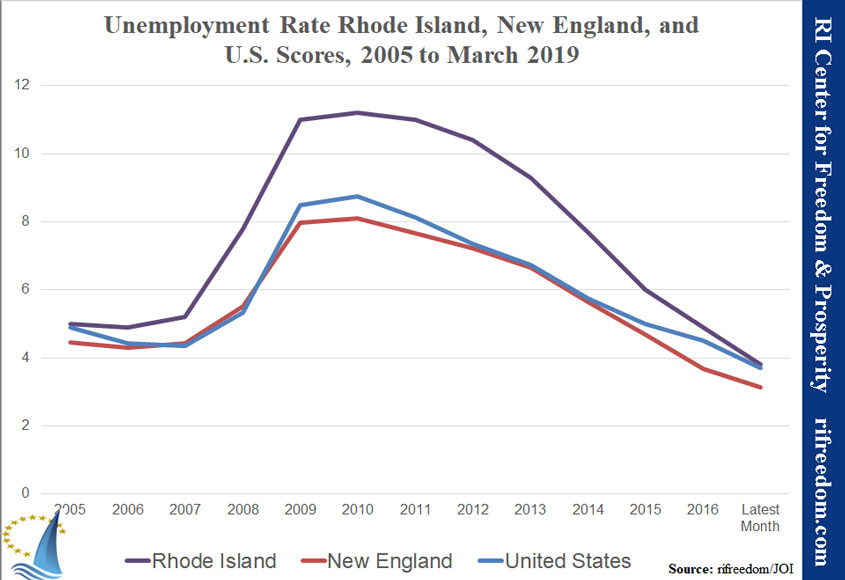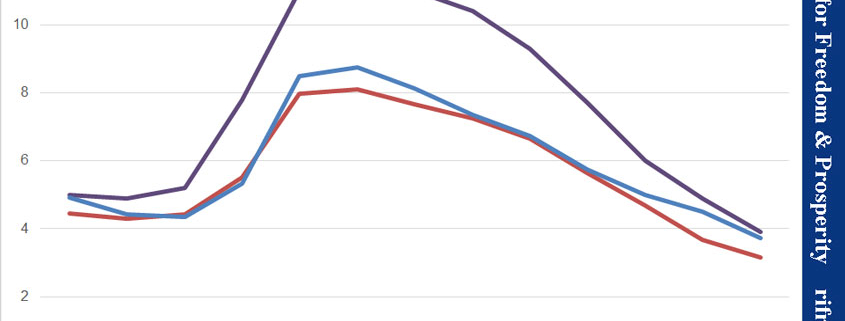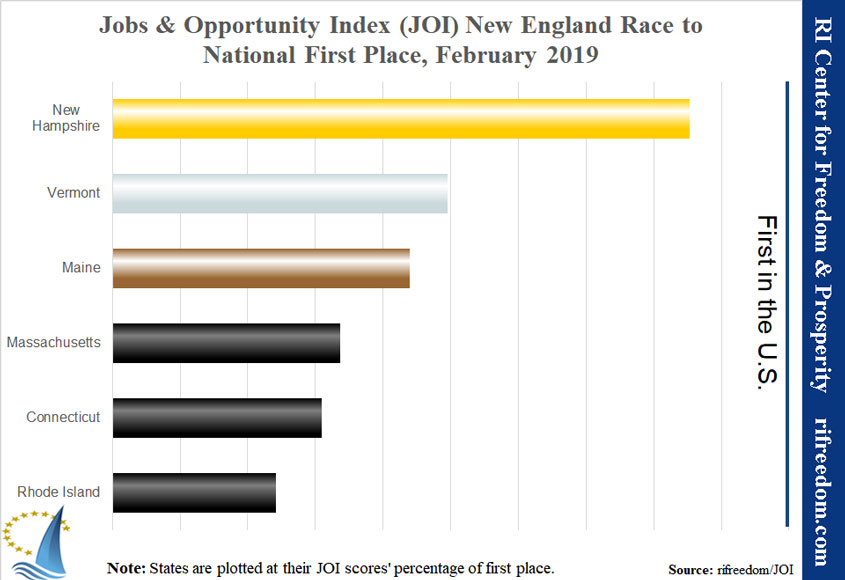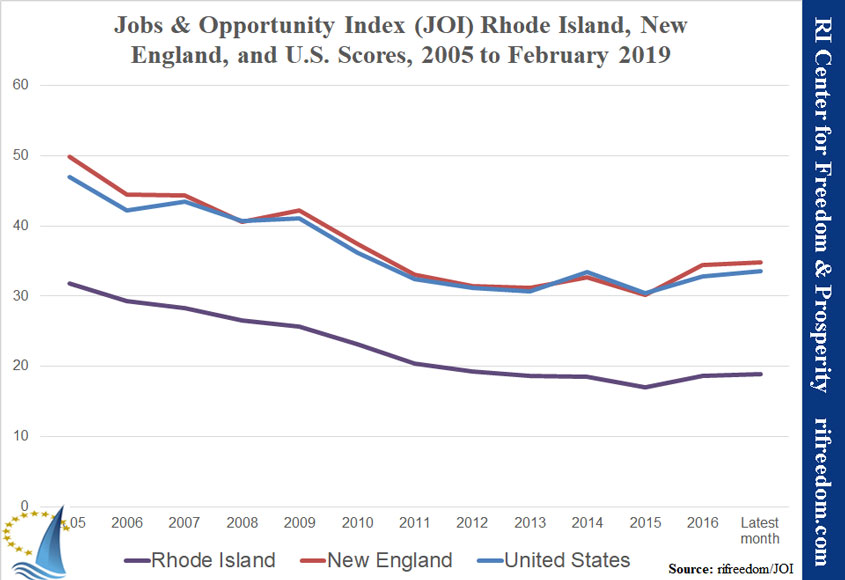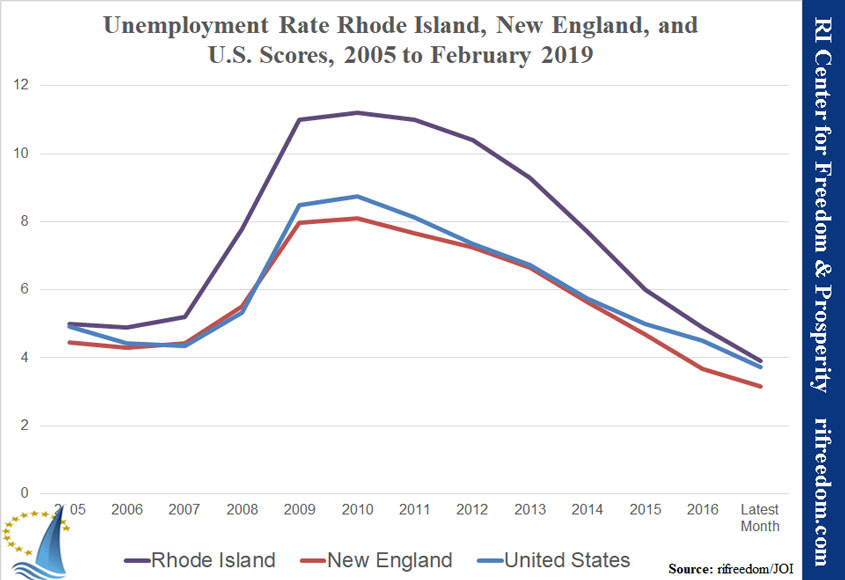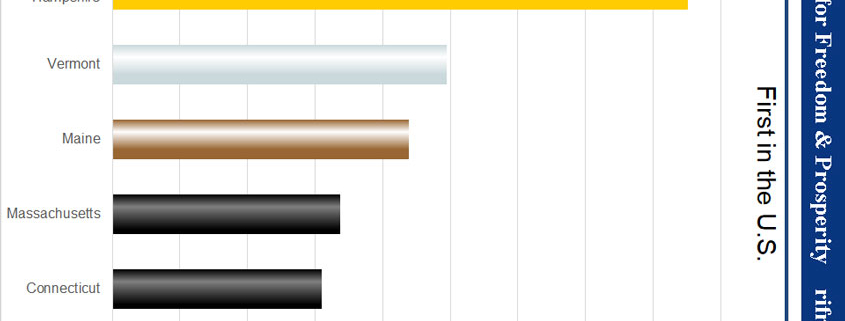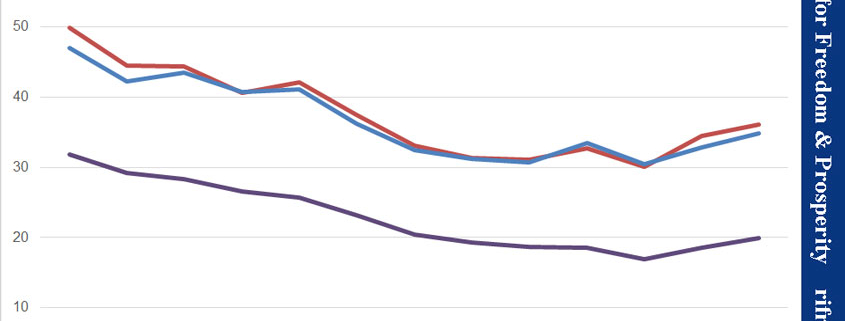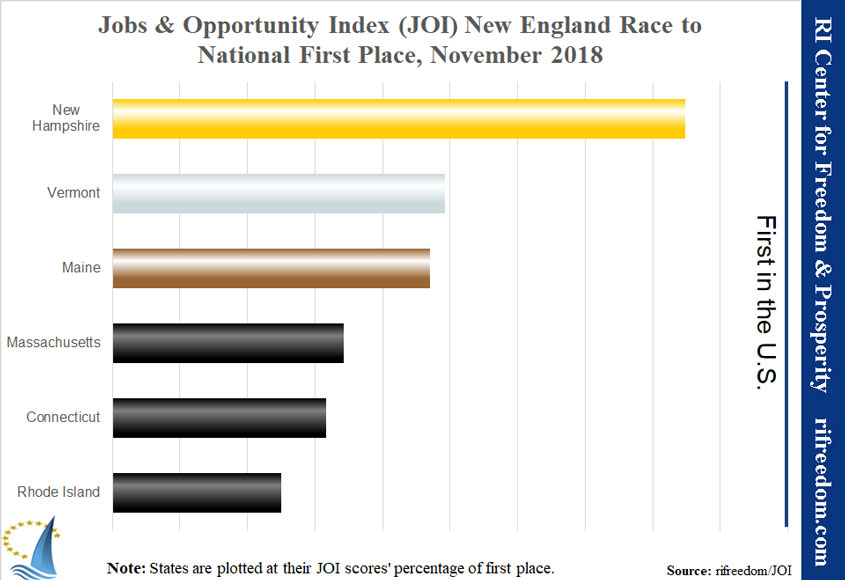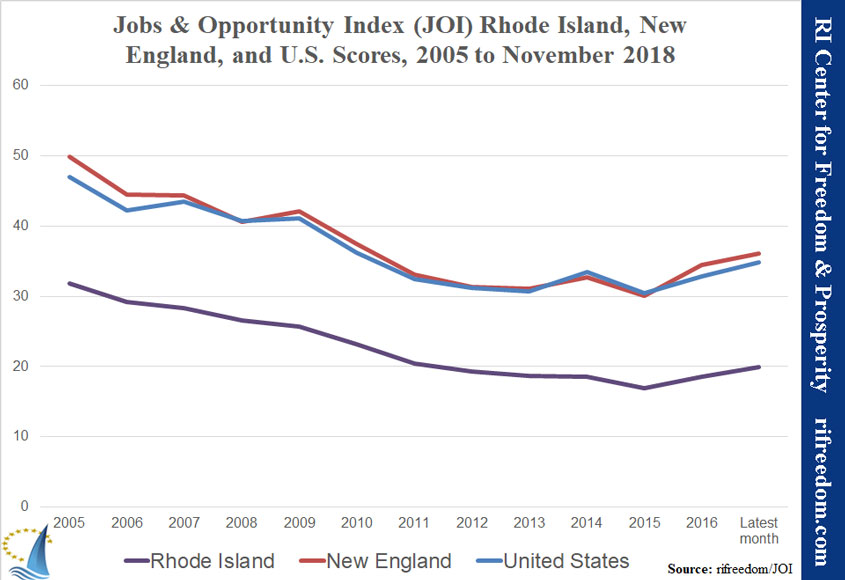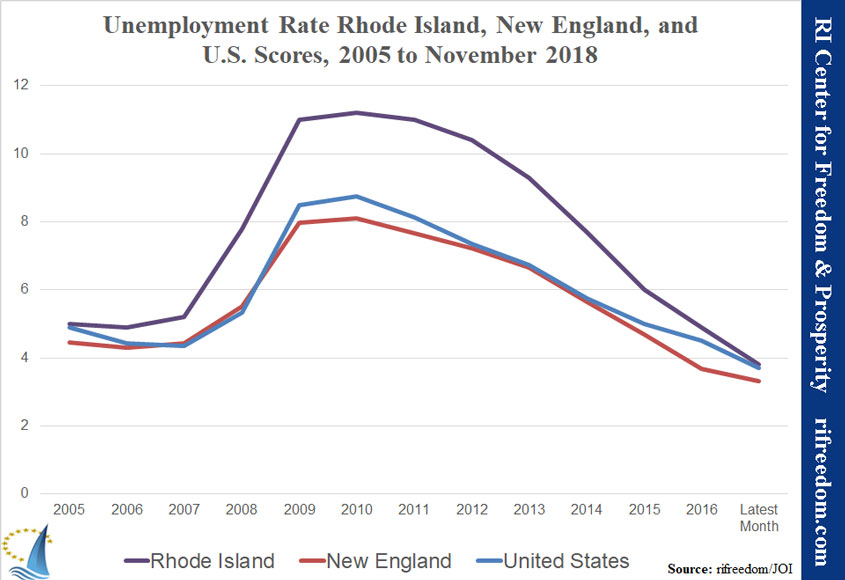Jobs & Opportunity Index (JOI), April 2020: A First Glimpse of the Chasm
The unemployment chart from this snapshot gives a sense of the shock that April brought to the country’s economic system, but delays in the other data points that make up the RI Center for Freedom & Prosperity’s Jobs & Opportunity Index (JOI) make this just a taste of the full bitterness. Rhode Island dropped one spot in its overall ranking to 48th in the country, but that was arguably due to weakness at the end of pre-COVID 2019. Data for 10 of the 12 datapoints of the index except TANF and federal taxes were updated for this iteration.
Jobs based in RI fell a whopping 19% from the originally reported number for December, and employment fell 18%, nearly 100,000 in both cases, and the labor force fell 5%. Medicaid enrollment (as of January) increased about 0.7%, while SNAP (foodstamp) enrollment was down 1.8% (as of February). Because the COVID-19 hit came all of a sudden, the Ocean State managed to improve on long-term unemployment (as of March), but experienced a 4% increase in marginally attached workers and another 18% increase in those working only part time because more work was not available.
Perhaps of more concern, because it reflects data from December, personal income in the state fell 1.0% on an annualized basis (a little under $500 million). At the same time, state and local taxation increased 1.7%, or $63 million.
The first chart shows RI remaining last in New England on JOI, at 48th. New Hampshire slipped two spots, to 3rd nationally. Maine fell three, to 20th, while Vermont managed to hold at 21st. Connecticut overtook Massachusetts by maintaining its 37th place while the Bay State plummeted five spots, to 41st.
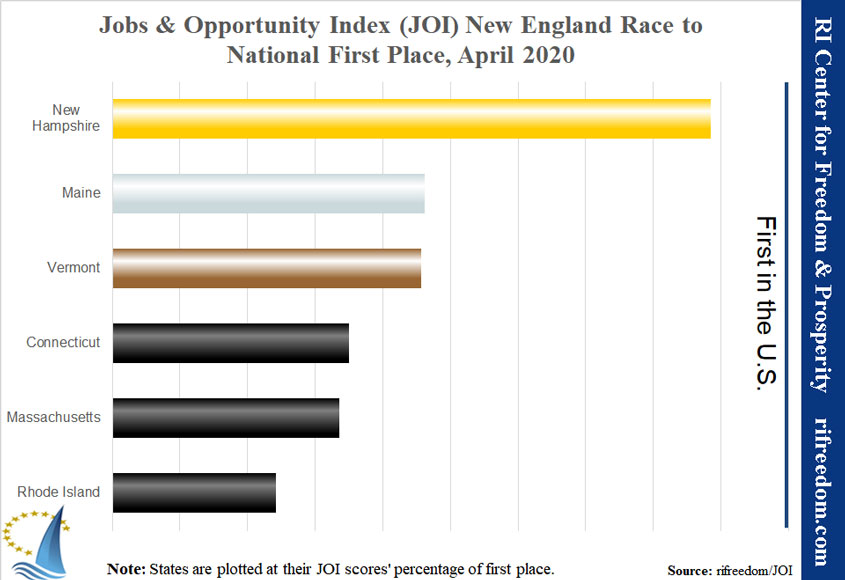
The second chart shows the gaps between RI and New England and the United States on JOI, and the third chart shows the gaps in the official unemployment rate.
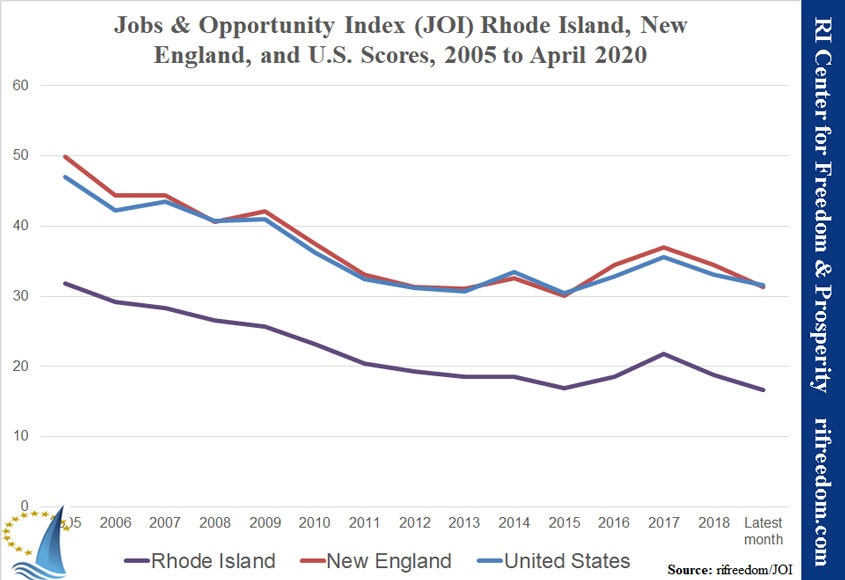
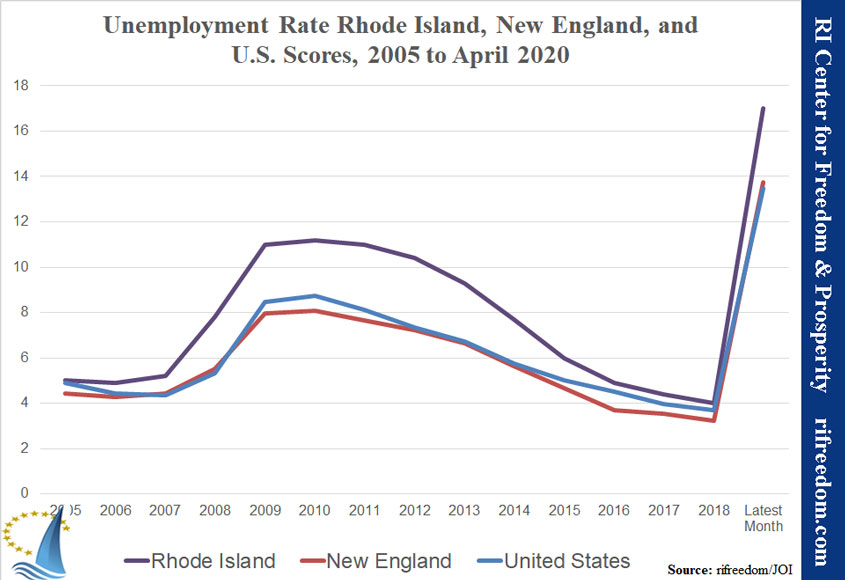
Results for the three underlying JOI factors were:
- Job Outlook Factor (optimism that adequate work is available): RI fell nine spots, to 36th.
- Freedom Factor (the level of work against reliance on welfare programs): RI fell three spots, to 44th.
- Prosperity Factor (the financial motivation of income versus taxes): RI remained 47th.

